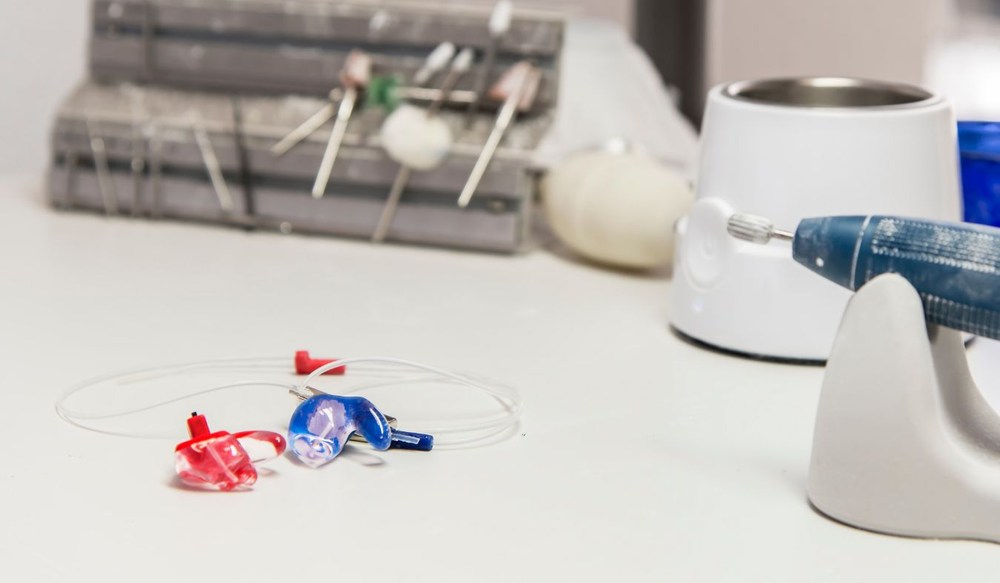Protecting Your Hearing During Summer Sports
Summer brings a lot more noise into your life than you might realize.
Walk In Cleaning Clinic: Come in on Mondays, Wednesdays, Thursdays, or Fridays anytime between 1 – 2pm for our walk in cleaning clinic!

For anybody experiencing some form of hearing loss, having the right hearing instrument will make a profound difference in their quality of life, but there’s more than one type of hearing device. Hearing aids are most commonly the instrument of choice, but there are also other hearing tools, such as cochlear implants. Both work for people who experience hearing loss, but what are the differences between the two and which is best for you?
A cochlear implant consists of two discreet components: a compact device nestled behind the ear and a meticulously placed internal component delicately inserted beneath the skin. The intricate process involves skillful surgical insertion of tiny electrodes or threads into the cochlea. Your hearing instrument will talk to you about cochlear implants and if they would be right for you.
A hearing aid is a battery-operated device that a person can wear inside or behind the ear. A hearing aid consists of a microphone, which receives the sound waves and converts them into electrical signals, an amplifier to magnify the sound and a speaker to send the amplified sound into the ear. There are different types of hearing aids, like behind the ear (BTE), in the ear (ITE) and in the canal (ITC) which may be a more suitable option depending on the degree of hearing loss.
The biggest difference between a cochlear implant and a hearing aid is that a cochlear implant involves surgery. A cochlear implant is also more suitable for those who experience profound hearing loss, such as complete deafness. Typically, those who experience mild-to-profound hearing loss would benefit more from hearing aids. A cochlear implant directly stimulates the auditory nerve, which the brain interprets and therefore can result in different sounds and the potential for sounds to have an artificial quality.
However, a hearing aid is the equivalent of turning the volume up on everything you hear. A hearing aid is also more customizable, and typically a hearing aid can come with different sound profiles, wireless compatibility, Bluetooth, feedback suppression and rechargeable or non-rechargeable batteries.
Those who experience profound hearing loss and cannot get the benefits from hearing aids would be prime candidates for cochlear implants. Prior to cochlear implants, a candidate must have a number of evaluations, including a medical exam.
There is a possibility that an individual can have a cochlear implant in one ear and a hearing aid in the other, which is commonly known as bimodal hearing. However, if you have atypical hearing loss, hearing aids are a better option. Typically, a cochlear implant works better if somebody experiences hearing loss due to what is known as auditory neuropathy, which is a hearing disorder where the inner ear detects sounds successfully but cannot send the sound up to the brain.
It’s important to understand that only with the help of a hearing instrument specialist can you truly understand which one is right for you. If you are experiencing any issues with your hearing, it’s important to schedule an appointment to get your hearing tested. A hearing instrument specialist will help you through the typical hearing tests, and if you are found to have any form of hearing loss, they will recommend the best course of action. Beyond merely testing your hearing, a hearing instrument specialist will take into account all mitigating factors and can therefore recommend the best course of action to suit the level of your hearing loss, your lifestyle and any other associated factors.
People experiencing hearing loss have a number of options depending on the level of the hearing loss. If the hearing loss is mild to profound, hearing aids can help improve the sound quality while also benefiting their quality of life.
If you are concerned about your hearing, it’s essential to get it checked out as soon as possible. We provide a variety of resources to help individuals who are experiencing hearing loss live their best lives. If you want to get in contact to book an appointment or for any more information, you can learn more about Better Hearing of Madison County at (315) 693-3637, and we will be happy to give you any support or advice you need.

Summer brings a lot more noise into your life than you might realize.

When you’re choosing hearing aids, you want devices that help you

Your hearing aids are more than just devices – they’re your